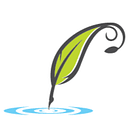Atherosclerosis-Its Natural Remedies And Prevention Through Herbs And Supplements
Atherosclerosis is a chronic, multifactorial illness primarily defined by alterations in blood lipid profiles and inflammation of the artery wall. The biggest cause of death in developed nations is currently cardiovascular disease, which is based on atherosclerosis. As a result, the chance of developing atherosclerosis and its clinical signs can be decreased with prompt diagnosis, treatment, and prevention.
Anti-atherosclerosis activity comes from medicinal plants’ anti-inflammatory, antioxidant, anti-atherogenic, hypotensive, lipid-lowering, and anti-thrombotic properties. However, the majority of medicinal herbs have pleiotropic anti-atherosclerotic properties.
Also, the pharmacological substances and/or compounds made from medicinal plants are relatively safe and have fewer side effects, which makes them a possible anti-atherosclerosis medicine. Clinical studies of carotid intima-media thickness (IMT) progression following long-term use of medicinal plants confirmed the direct anti-atherosclerotic activity of several medicinal plants.
The Distinction Between Atherosclerosis And Artery Disease
Although the phrases “artery” and “atherosclerosis” are often confusing because many take them as synonyms and occasionally use them interchangeably, they have different meanings.
When the arteries, which are the blood vessels that carry oxygen and nutrients from the heart to the rest of the body, get thick and stiff, blood flow to the organs and tissues may be limited. This condition is known as arteriosclerosis. Flexible and elastic arteries indicate good health. However, the artery walls can stiffen over time, a phenomenon known as arterial hardening.
Atherosclerosis Is A Subtype Of Arteriosclerosis
The accumulation of lipids, cholesterol, and other chemicals in and on the artery walls is known as atherosclerosis. The accumulation is known as plaque. Atherosclerosis can constrict the arteries and obstruct blood flow. The plaque may rupture and cause a blood clot.
Even though atherosclerosis is frequently associated with heart issues, it can impact arteries throughout the body. Atherosclerosis can be cured. Adopting a healthy lifestyle can help stop atherosclerosis.
Atherosclerosis Symptoms
Symptoms of mild atherosclerosis are typically nonexistent.
Most of the time, symptoms of atherosclerosis don’t show up until an artery is so narrowed or blocked that it can’t get enough blood to organs and tissues. A blood clot can occasionally entirely stop the flow of blood. A heart attack or stroke may occur if the clot fragments.
Depending on which arteries are compromised, atherosclerosis can cause mild or severe symptoms. For instance, you might feel a kind of pressure or pain in your chest if you have atherosclerosis. Atherosclerosis narrows your heart’s arteries, causing pain. (angina).
If you have atherosclerosis in the arteries that lead to your brain, you may have sudden numbness or weakness in your arms or legs, trouble speaking or slurred speech, a brief loss of vision in one eye, or facial muscles that sag. They indicate a brief ischemic attack (TIA). A TIA can cause a stroke if left untreated.
If you have atherosclerosis in the arteries in your arms and legs, you may have symptoms of peripheral artery disease, like claudication or low blood pressure in a limb. People who have atherosclerosis in the arteries that lead to their kidneys are more likely to get high blood pressure or kidney failure.
Supplements And Herbs For Atherosclerosis
1. Garlic (Allium sativum)
Since the time the Egyptian pyramids were constructed, garlic has been used both as food and medicine. Gravediggers in France at the beginning of the 18th century thought that drinking crushed garlic in wine would keep them from getting the plague. Soldiers were fed garlic during World Wars I and II to stop gangrene. Additionally, it was applied to wounds as an antiseptic to avoid infection.
Garlic is now used to help avoid heart disease, high cholesterol, high blood pressure, atherosclerosis, or hardening of the arteries (plaque buildup in the arteries that can restrict the flow of blood and may lead to a heart attack or stroke), and to strengthen the immune system. Regular consumption of garlic may also help prevent cancer.
Antioxidants are abundant in garlic. Free radicals are bad molecules that build up in your body as you get older. They may be linked to heart disease, cancer, and Alzheimer’s. Antioxidants in garlic help fight off free radicals and may help lessen or even stop some of the damage they cause over time.
Gotu kola (Centella asiatica)
Gotu kola is an herb belonging to the parsley family. It has a lengthy history of use in both Ayurvedic and traditional Chinese medicine. Certain compounds found in Gotu kola appear to lower blood pressure and edema. Additionally, it appears to boost collagen formation, which could be advantageous for wound healing.
To read the full blog, visit: https://eastsidewriters.com/atherosclerosis-its-natural-remedies-and-prevention-through-herbs-and-supplements/
